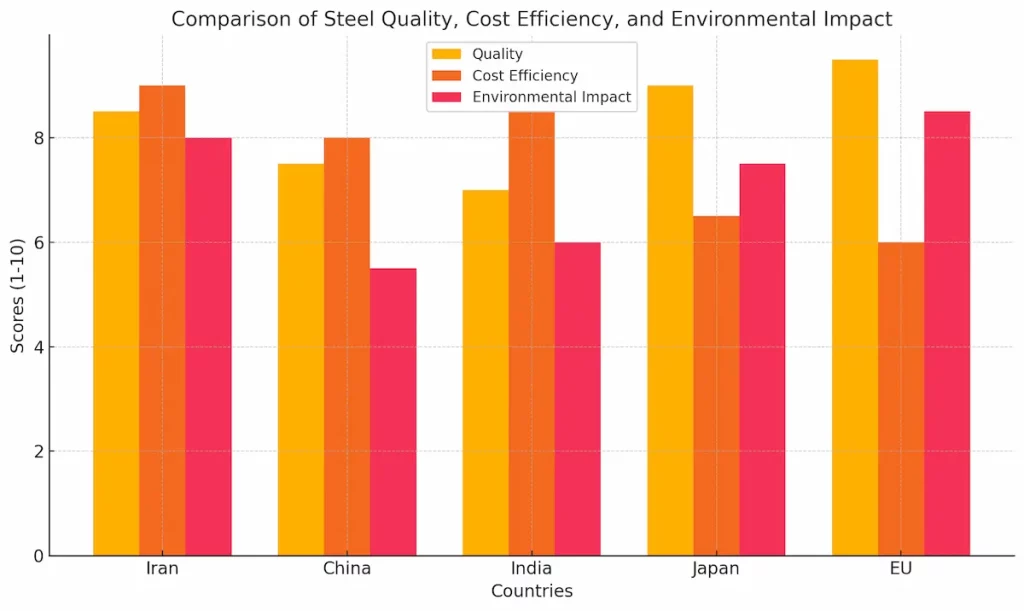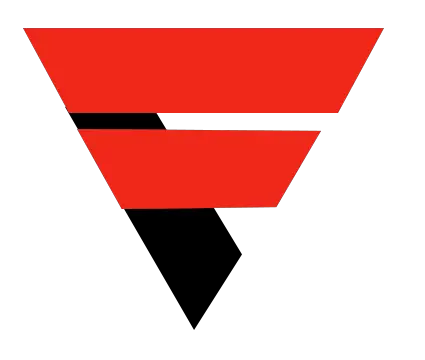The Quality of Iranian Steel: A Technical Comparison
Iran has emerged as a significant player in the global steel industry, ranking among the top ten steel producers worldwide. Its robust production infrastructure and adherence to international standards make Iranian steel a competitive choice for various industries, including construction, automotive, and heavy machinery. In this article, we explore the factors that make Iranian steel a compelling option and how it compares to steel from other regions.
1. Rich Natural Resources for Steelmaking
Iran is endowed with abundant iron ore reserves, ranking as one of the top global producers of this critical raw material. The quality of Iran’s iron ore deposits ensures a high-grade steel output, which directly influences the strength, durability, and structural integrity of the steel products. This availability of premium raw materials gives Iranian steel an edge over countries that rely heavily on imported iron ore.
Reference(s):

2. Energy Efficiency and Cost Advantages
Iran benefits from its rich oil and natural gas reserves, which translate into lower energy costs for steel manufacturing. The energy-intensive nature of steel production makes this a significant advantage, enabling Iranian manufacturers to produce high-quality steel at competitive prices. For comparison, steel producers in Europe and Japan often face higher energy costs, which can increase their product prices despite their advanced technology.
Reference(s):

3. Advanced Manufacturing Processes
Leading Iranian steel companies, such as Mobarakeh Steel Company and Khouzestan Steel Company, utilize state-of-the-art technologies, including electric arc furnaces (EAF) and direct reduction methods. These processes are environmentally friendly and produce steel that meets stringent international quality standards. The adoption of advanced rolling mills and quality control measures ensures precision in dimensions and mechanical properties, comparable to or even exceeding international benchmarks.
Reference(s):

4. Skilled Workforce and Competitive Labor Costs
Iran’s young and educated workforce plays a pivotal role in maintaining high production quality. Engineers and technicians in Iran are well-trained in metallurgical and industrial engineering, ensuring the efficient operation of steel plants. Combined with lower labor costs compared to Western and East Asian countries, this results in cost-effective production without compromising on quality.
Reference(s):

5. Geographic and Logistic Advantages
Iran’s strategic location offers easy access to major international markets in Asia, Europe, and Africa. With ports along the Persian Gulf and the Caspian Sea, Iranian steel producers can export their products efficiently. The proximity to these markets reduces shipping times and costs, making Iranian steel an attractive option for buyers.
Reference(s):

6. Environmental Considerations
Iranian steel manufacturers have increasingly adopted sustainable practices, including the use of green technologies and waste recycling. Companies like Iran Alloy Steel Co. have received recognition for their environmental stewardship, aligning with global trends towards sustainable steel production.
Reference(s):
Comparison with Other Steel-Producing Nations
- European Steel: European steel is known for its advanced technology and high standards but comes at a significantly higher cost due to expensive energy and labor.
- Chinese Steel: While Chinese steel is cost-competitive, concerns about quality consistency and environmental impact persist.
- Japanese Steel: Japan is renowned for premium steel quality, particularly for automotive and electronics applications, but it is one of the most expensive options globally.
- Indian Steel: India offers affordable steel with a focus on infrastructure-grade materials, though it often lacks the high-grade quality of Iranian alloy and structural steel.

Conclusion: Why Choose Iranian Steel?
Iranian steel stands out for its combination of quality, cost-efficiency, and environmental consciousness. It offers technical advantages, such as high tensile strength, corrosion resistance, and dimensional accuracy, meeting the needs of industries with rigorous standards. For buyers seeking reliable and economical steel solutions, Iranian steel is an excellent choice supported by rich resources, skilled production, and competitive pricing.
Reference(s):
